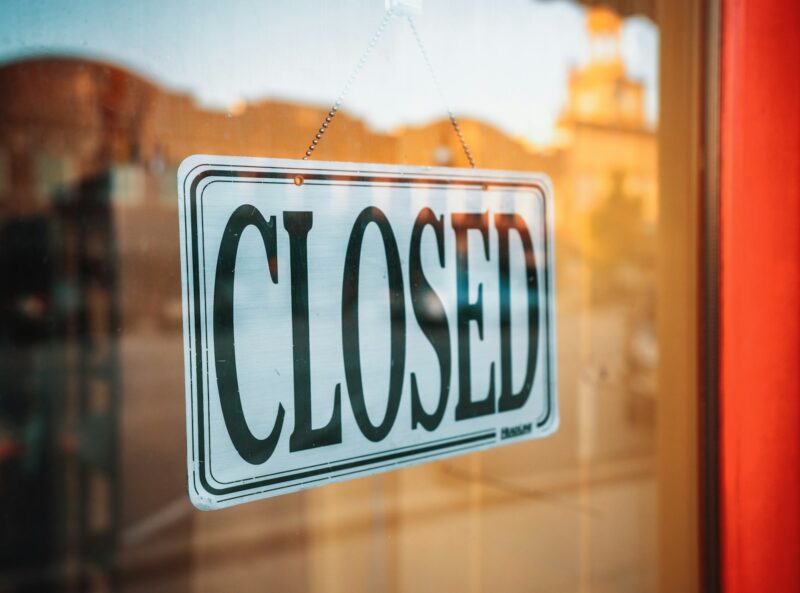Table of Contents
ToggleNavigating Business Licenses and Permits
Starting a business is exciting, but it comes with important legal steps. You need to get the right licenses and permits to operate legally. Many businesses require a combination of licenses and permits from local, state, and federal agencies.
Getting these documents can seem tricky. But don’t worry – with some planning, you can navigate this process. Knowing what you need helps you avoid problems down the road. It also shows customers and partners that you run a legitimate business.
The exact licenses you’ll need depend on your type of business and location. For example, restaurants need food service licenses and health permits. Other businesses may need professional licenses or environmental permits. We’ll explore common types of licenses and how to get them.
This information is for general guidance only. It’s not legal or financial advice. Please talk to a professional advisor about your specific situation.
Understanding Business Licenses And Permits
Starting a business involves more than just a great idea. You need to navigate the world of business licenses and permits. These legal documents ensure your business operates within the law and meets safety standards.
Definition Of Business Licenses And Permits
Business licenses and permits are official documents that allow you to run your business legally. A license gives you permission to operate your business in a specific location. It shows you’ve met certain standards set by the government.
Permits are different. They allow you to do specific activities related to your business. For example, you might need a permit to serve food or sell alcohol.
Both licenses and permits have expiration dates. You need to renew them regularly to keep your business in good standing. The exact requirements depend on your business type and location.
Differences Between Licenses And Permits
Licenses and permits serve different purposes:
- Licenses are broad. They give general permission to run your business.
- Permits are specific. They allow certain activities within your business.
Licenses often apply to your whole business. Permits usually relate to particular aspects of your operations. For example, you might need a general business license to open your doors. But you’d need separate permits for things like:
- Putting up signs
- Renovating your space
- Selling certain products
The process to get licenses and permits can vary. Licenses often require a fee and basic information about your business. Permits might need inspections or proof of specific qualifications.
Necessity For Legal Business Operations
Operating without proper licenses and permits can lead to serious problems. You could face fines, legal action, or even have to shut down your business.
Different levels of government require different licenses and permits. You might need them from:
- Federal agencies
- State governments
- County officials
- City authorities
The exact requirements depend on your business type and location. For example, a restaurant needs more permits than a home-based online store.
Getting the right licenses and permits protects you and your customers. It ensures you’re following safety rules and operating fairly. It also gives your business credibility and shows you’re committed to doing things right.
Types Of Business Licenses And Permits
Business licenses and permits come in many forms. They vary based on your location, industry, and business activities. Understanding the different types will help you stay compliant and avoid legal issues.
General Business License
A general business license is often your first step in making your business official. You’ll need this basic permit to operate legally in most cities or counties. It shows you’ve registered your business and helps local governments track economic activity.
To get a general business license, you’ll typically need to:
• Fill out an application form • Pay a fee • Provide your business details
The cost and renewal process can differ depending on where you’re located. Some places charge a flat fee, while others base it on your expected revenue.
Remember, having a general business license doesn’t mean you’re free from other permit requirements. You may need additional licenses depending on your specific business activities.
Federal Licenses And Permits
Federal licenses and permits are needed for businesses involved in activities the federal government regulates. These are less common than state or local permits, but they’re crucial if your business falls under federal oversight.
You might need a federal license or permit if you work in:
• Agriculture • Firearms • Mining • Broadcasting • Transportation across state lines
The process for getting federal permits can be complex. Each agency has its own rules and procedures. For example, if you’re in the food industry, you’ll deal with the Food and Drug Administration. If you handle firearms, you’ll work with the Bureau of Alcohol, Tobacco, Firearms and Explosives.
Be prepared for detailed applications and possible inspections. Federal permits often require ongoing compliance and regular renewals.
State Licenses And Permits
State licenses and permits are more common than federal ones. They apply to a wider range of businesses. The exact requirements vary by state, but many industries need state-level approval to operate.
Some common state licenses include:
• Professional licenses for doctors, lawyers, and accountants • Sales tax permits • Liquor licenses • Contractor licenses
Each state has its own licensing board or agency. They set the rules for getting and keeping these permits. You might need to pass an exam, prove your experience, or meet specific education requirements.
Don’t forget to check if your license needs to be renewed. Some are good for several years, while others need yearly renewal. Staying on top of these deadlines is key to keeping your business running smoothly.
Local Licenses And Permits
Local licenses and permits are often the most numerous for small businesses. Cities, counties, and towns each have their own rules. These cover a wide range of business activities and help ensure public safety and zoning compliance.
Common local permits include:
• Zoning permits • Building permits • Sign permits • Home occupation permits
Zoning permits make sure your business is in the right area. Building permits are needed for construction or major renovations. Sign permits control the size and placement of business signs.
If you’re running a business from home, you might need a home occupation permit. This shows your home-based business won’t disrupt the neighborhood.
Local permits can be tricky because they vary so much from place to place. What’s required in one city might not be needed in another. Always check with your local government to make sure you’re fully compliant.
Industry-Specific Licenses And Permits
Some businesses need special licenses based on their industry. These cover unique risks or regulations in certain fields. They’re often required on top of your general business license.
Industries that often need specific licenses include:
• Restaurants and food service • Healthcare providers • Construction • Childcare • Real estate
For example, restaurants need health permits. These show you’re following food safety rules. Construction businesses often need contractor licenses proving their expertise.
The requirements for these licenses can be strict. You might need special training, inspections, or insurance. Some industries also face ongoing audits to keep their licenses.
Don’t assume you know all the licenses you need. New regulations can pop up, especially in fast-changing industries. It’s smart to check with your industry association or a local business advisor. They can help you stay up-to-date on all the permits you need to operate legally and safely.
Steps To Obtain Business Licenses And Permits
Getting the right licenses and permits is key to starting your business on the right foot. Let’s walk through the main steps you’ll need to take to make sure you’re fully compliant.
Researching Requirements
Start by finding out exactly what licenses and permits you need. Your requirements will depend on your business type, location, and activities. Check with your local city or county clerk’s office for local permits. For state licenses, visit your state’s business website.
Don’t forget about federal licenses for certain industries. The Small Business Administration has a list of industries that need federal licensing.
Think about:
- General business license
- Professional licenses
- Health permits
- Zoning permits
- Home occupation permits
Make a checklist of all the licenses and permits you need. This will help you stay organized as you go through the process.
Preparing Necessary Documentation
Now that you know what you need, it’s time to gather your paperwork. Most applications will ask for:
- Your business structure (LLC, sole proprietorship, etc.)
- Business name
- Employer Identification Number (EIN) or Social Security Number
- Business address
- Description of your business activities
You might also need:
- Proof of insurance
- Financial statements
- Background checks
- Certifications or diplomas
Keep all these documents in a safe place. You’ll likely need them again for renewals or other business matters.
Submitting Applications
With your research done and paperwork ready, it’s time to apply. Many cities and states now offer online application options. This can save you time and hassle.
Fill out each application carefully. Double-check all information before submitting. Mistakes can lead to delays or rejections.
Be prepared to pay fees. Costs vary widely depending on your location and business type. Some licenses are cheap, while others can cost hundreds or even thousands of dollars.
If you’re not sure about something, ask for help. Many government offices have staff who can guide you through the process.
Following Up And Staying Informed
After you submit your applications, keep track of their progress. Some licenses might be approved quickly, while others could take weeks or months.
If you haven’t heard back after a reasonable time, don’t be afraid to follow up. A polite phone call or email can often speed things along.
Once you get your licenses, mark their expiration dates on your calendar. Many need to be renewed annually. Set reminders so you don’t forget.
Stay informed about changes to laws and regulations in your area. New rules might mean you need additional licenses or permits. Join local business groups or chambers of commerce. They often share important updates about licensing requirements.
Importance Of Staying Compliant
Keeping your business licenses and permits up to date is crucial for your success and legal operation. It protects you from fines, ensures you meet safety standards, and helps you avoid costly disruptions.
Ongoing Responsibilities Of Maintaining Business Licenses And Permits
Your business licenses and permits aren’t just one-time tasks. You need to stay on top of them throughout your business life. This means keeping accurate records and tracking expiration dates.
You’ll need to:
• Update your information if your business details change • Renew licenses before they expire • Pass regular inspections • Meet ongoing certification requirements
Don’t forget about local rules. Your city or county might have specific demands. Check with them often to make sure you’re following all the rules.
Need For Renewals And Tracking Renewal Dates
Most licenses and permits don’t last forever. You’ll need to renew them regularly. Set up a system to track when each one expires. This could be a simple calendar or a more complex software solution.
Mark important dates well in advance. Give yourself plenty of time to gather any needed documents or complete required training. Some renewals might need you to show proof of continued education or updated certifications.
Remember, renewal processes can change. Stay in touch with the issuing agencies to catch any updates to their rules or procedures.
Consequences Of Non-Compliance
Failing to keep your licenses and permits current can lead to serious problems. You might face fines or penalties. In some cases, you could even be forced to shut down until you comply.
Non-compliance can also hurt your reputation. Customers might lose trust if they find out you’re not following the rules. This can lead to lost business and damage that’s hard to repair.
In some industries, operating without proper licenses can even result in criminal charges. It’s not worth the risk. Stay on top of your compliance to avoid these harsh consequences.
Tips For Staying Compliant
Create a compliance calendar. Mark all important dates for renewals, inspections, and required reports. Review this calendar regularly to stay ahead of deadlines.
Keep all your license and permit documents in one safe place. Make digital copies as backups. This makes it easy to find what you need when it’s time to renew or show proof of compliance.
Stay informed about changes in your industry. Join professional groups or set up alerts for news about regulations in your field. This helps you adapt quickly to new rules.
Consider using compliance management software. These tools can track deadlines, store documents, and even notify you when action is needed. They can save you time and reduce the risk of missing something important.
Common Challenges And How To Overcome Them
Getting the right licenses and permits can be tricky. You’ll face some hurdles, but with the right approach, you can tackle them head-on. Let’s look at what you might run into and how to handle it.
Common Challenges In Obtaining Licenses And Permits
You might find the process confusing and time-consuming. Each city or state has its own rules, making it hard to know where to start. The costs can add up quickly, putting a strain on your budget. You may also face:
• Long wait times for approvals • Changing regulations • Strict zoning laws • Paperwork overload
These issues can slow down your business launch or growth plans. But don’t worry – you’re not alone in facing these hurdles.
Strategies For Overcoming These Challenges
Stay organized and plan ahead. Start by making a checklist of all the permits you need. This will help you track your progress and avoid missing anything important.
Research is key. Look up your local laws and talk to other business owners. They can give you tips on what to expect.
Be ready for costs. Set aside money for fees and possible legal help. This way, you won’t be caught off guard by expenses.
Consider hiring an expert. A lawyer or consultant who knows about business licenses can save you time and headaches.
Resources And Support Available To Business Owners
You don’t have to figure it all out alone. There are many places to get help:
• Your local Small Business Administration (SBA) office • Chamber of Commerce in your area • Online government portals with permit info • Business mentorship programs
These resources can guide you through the process. They often offer free advice and workshops. Some even have step-by-step guides for getting licenses in your area.
Don’t forget about networking. Join business groups or attend local meetups. You can learn from others who’ve been through the same challenges. Their experiences can be invaluable as you navigate your own journey.
Additional Resources
Getting your business licenses and permits can be tricky. Here are some helpful resources to guide you through the process and keep you compliant.
Government Websites And Resources For Business Licenses And Permits
The U.S. Small Business Administration offers a wealth of information on licenses and permits. You can find:
• A list of federal licenses required for specific industries • Links to state-level resources • Guidance on local permits
Your state’s Secretary of State website is another valuable resource. It often provides:
• Online business registration services • Tax ID number applications • Information on required state licenses
Don’t forget to check your local government’s website. Many cities have online portals where you can:
• Apply for business licenses • Pay fees • Schedule inspections
Contact Information For Business Attorneys, Accountants, And Advisors
Professional help can make a big difference in navigating licenses and permits. Here’s who to contact:
Business Attorneys: They can review your applications and ensure you’re following all legal requirements. Look for lawyers specializing in small business or corporate law.
Accountants: These pros can help with tax permits and financial compliance. Find a Certified Public Accountant (CPA) with experience in your industry.
Business Advisors: SCORE offers free mentoring services. They can connect you with experienced business owners who’ve been through the licensing process.
Suggested Books, Courses, And Online Resources For Further Learning On Business Compliance
To deepen your knowledge on business compliance, consider these resources:
Books: • “The Small Business Start-Up Kit” by Peri Pakroo • “Legal Guide for Starting & Running a Small Business” by Fred S. Steingold
Online Courses: • Coursera offers business law courses from top universities • Udemy has practical courses on obtaining specific licenses and permits
Websites: • OpenGov provides a comprehensive guide on business licensing • The IRS website offers tutorials on tax compliance for small businesses
Remember, staying informed about business licenses and permits is crucial for your business success. Keep these resources handy as you navigate the world of business compliance.










